
Now that the summer is cooling down, we’re entering perhaps the best time of year for cinephiles, with a variety of festivals — some of which will hold premieres of our most-anticipated 2015 features — gearing up. As we do each year, after highlighting the best films offered thus far, we’ve set out to provide a comprehensive preview of the fall titles that should be on your radar, and we’ll first take a look at selections whose quality we can attest to. Ranging from a handful of premieres last from fall to acclaimed debuts at Sundance, Cannes, and more, we’ve rounded up 30 titles that will arrive from September to December (in the U.S.) that are all well worth seeking out.
As a note, these (including The Cut) didn’t make the cut, but you can see our reviews at the links: A Walk in the Woods (Sept. 2nd), Coming Home (Sept. 9th), A Brilliant Young Mind (Sept. 11th), The Fool (Sept. 16th), The Cut (Sept. 18th), Racing Extinction (Sept. 18th), The Green Inferno (Sept. 25th), Knock Knock (Oct. 9th), Meadowland (Oct. 16th), I Smile Back (Oct. 23rd), Love (Oct. 30th), Very Semi-Serious (Nov. 20th), and Youth (Dec. 4th).
There’s also bound to be more releases revealed in the coming months (45 Years, Dheepan, and Dark Horse are some of the must-see potential late-year releases), but we stuck only to ones with release dates we could confirm. Check out the 25 below and return in the coming days for the rest of our previews, including our most-anticipated films and the festival premieres we’re most looking forward to.
Time Out of Mind (Oren Moverman; September 9th)
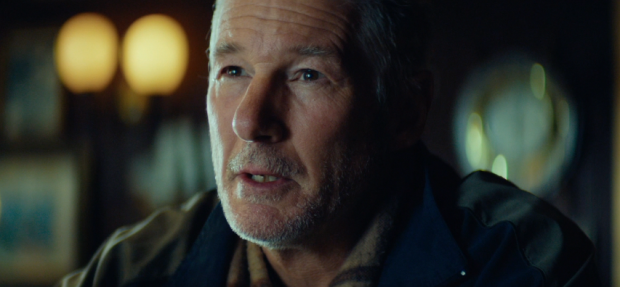
Finding a link between the shared title of Oren Moverman‘s third feature film, Time Out of Mind, and Bob Dylan’s 1997 album took a little effort. Moverman co-wrote the script for Todd Haynes’ fantastic Dylan saga I’m Not There, and perhaps it was here that the title resonated and, to the writer-director’s mind, could be grafted onto his latest, Richard Gere-led drama. – Zade C. (full review)
Welcome to Leith (Christopher K. Walker and Michael Beach Nichols; September 9th)

In what could also be described as a horror film, Welcome to Leith is a truly terrifying portrait of a small town of 24 residents that one day receives an unwelcome neighbor: a white supremacist interested in moving his people in to create their own Aryan hamlet. Both Craig Cobb and associate Kynan Dutton, as well as long-time town residents — including mayor Ryan Schock — provide access to filmmakers Michael Beach Nichols and Christopher K. Walker, who patiently wait for the saga to play out. – John F. (full review)
Goodnight Mommy (Severin Fiala and Veronika Franz; Sept. 11th)
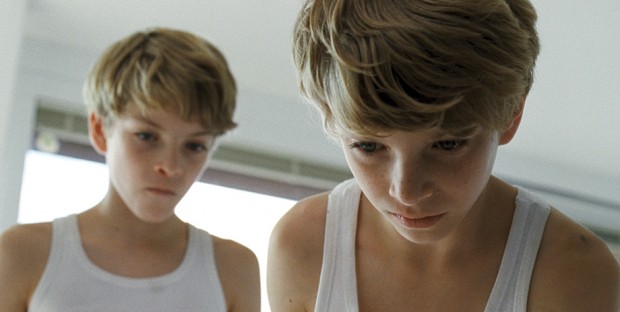
As its moniker suggests, one never quite knows what to expect when it comes to secret screenings during Fantastic Fest. At times they can be highly-anticipated titles that blow the doors off the venue or they can present films that had little-to-no demand that simply rock. This year was most certainly the latter, as Goodnight Mommy (or Ich Seh Ich Seh) screened, a film I’m thoroughly convinced will be divisive and also one that I imagine will be highly rewatchable. There’s little doubt about the insanity within this chilling Austrian thriller. While the more vague the better, it is a cruel, twisting narrative that too obviously telegraphs some aspects but also keeps a handful of the proceedings mysterious and is all the better for it. – Bill G. (full review)
Respire (Mélanie Laurent; September 11th)

French actress Mélanie Laurent’s drama Respire (Breathe) is not just the most impressive film so far this year directed by an actor. It also ranks among the most astute recent studies of the emotional minefield that is adolescence. The story of the friendship between two teenage girls — the quiet, thoughtful Charlie and impulsive, outgoing Sarah — is grounded in realism. While Breathe takes a turn toward melodrama in its final moments, even this shift is believable, and feels utterly appropriate. It has not garnered the attention of modern French classic Blue is the Warmest Color, but Breathe is nearly as strong a film, and certainly as memorable. The similarly-themed pictures would, in fact, make a fine double-bill of trois coleurs cinema exploring the highs and lows of teenage wildlife. That’s high praise, but Laurent deserves it. Long one of our most uniquely talented and expressive performers, with Breathe she shows that Mélanie Laurent the filmmaker is capable of the same subtlety Mélanie Laurent the actor has displayed in films like Inglourious Bastards and Beginners. With stars Joséphine Japy (Charlie) and Lou de Laâge (Sarah), Laurent has brought to life two wonderfully realized, startlingly flawed characters on the cusp of adulthood. – Christopher S.
Sleeping with Other People (Leslye Headland; September 11th)
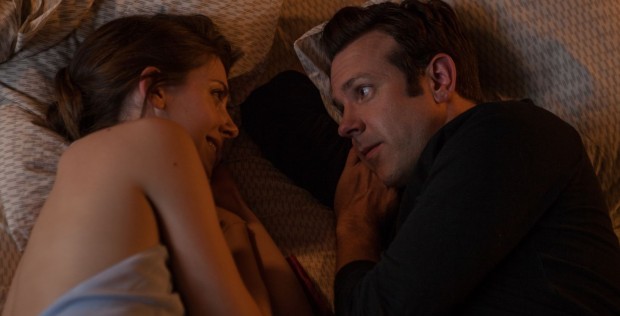
Every year it seems we sound the death knell of the romantic comedy. They often feel too “big” for a sometimes particular indie scene, and studios aren’t making them anymore in a market built for an international audience not quite as comfortable with (mostly) privileged white people having introspective conversations about what’s in their heart and what not. So let it be said, that the romantic comedy has re-emerged alive and well, thanks in no large part to writer/director Leslye Headland and her film Sleeping with Other People, starring Jason Sudeikis and Alison Brie. Working within sub-genre expectations with a sure hand and a bit of a sardonic streak, Headland finds fresh ground to tread in familiar territory, not-so-subtly updating When Harry Met Sally… for a generation a tad more comfortable with oral sex and obsessed with their iPhones. – Dan M. (full review)
Peace Officer (Scott Christopherson and Brad Barber; September 16th)

Instead of focusing on the largest hot-button issue now, race in relation to policing, directors Brad Barber and Scott Christopherson take a different tact. What truly separates Peace Officer from the average documentary is that it not only takes on a compelling subject matter, but it uses William “Dub” Lawrence as the fascinating linchpin of the entire film. Dub becomes the level-headed investigator for both the police and the victims. Considering it was Dub that approached directors Brad Barber and Scott Christopherson it isn’t surprising they decided to use him as the compelling centerpiece. Lawrence’s history is particularly fascinating. In 1974, he became Sheriff of Davis County, Utah and served the public for years to come. Just a few years later we formed the county’s SWAT unit that would decades later kill his own son-in-law. – John F. (full review)
Sicario (Denis Villeneuve; September 18th)

With each film, Denis Villeneuve proves his talent for crafting extremely effective visceral spectacles, ensnaring the viewer through expert engineering of mood and action. Yet, with each film, he undermines his achievement by attempting to aggrandize his narratives with weighty undercurrents that are, in fact, desperately vacuous. While Sicario is no exception, unlike the insufferably pretentious Enemy, it delivers a constant, exhilarating stream of elaborate and exquisitely photographed thrills that ends up largely compensating for the would-be profundity. – Giovanni M.C. (full review)
Songs From the North (Soon-Mi Yoo; September 18th)

“Dictatorships are banal” might be the main thesis of Songs from the North, a curious essay film from Soon-Mi Yoo (who contributed a segment to Far from Afghanistan). The cultural vision of North Korea is certainly one that often feels limited here in the United States: CNN specials about horrors under the reign of their three Kims (Il-sung, Jong-il, and Jong-un), oddball visits by Americans like Dennis Rodman, and, now, a standard enemy in films like Red Dawn and Team America: World Police. (This is to say nothing of an especially odd thread running through David Cronenberg’s debut novel, Consumed.) In that regard, Yoo’s film is a necessary correction of how we should view or think about what life is really like in North Korea, even if the work feels somewhat limited by its own necessity. – Peter L. (full review)
The Reflektor Tapes (Kahlil Joseph; September 24th)

After earning the top honor at the Grammys, Arcade Fire delivered another epic album with the two-part Reflektor and with the release brought a worldwide tour. There to capture it all was the Sundance-winning Kahlil Joseph and the result is the feature-length documentary The Reflektor Tapes. Set to screen across the globe on September 23rd after a TIFF premiere, I got an early look at the film, and while full reviews are under embargo until the official debut, I can tell you it’s a deeply intimate look at the process of creation and touring — one that should please any fan of the band. – Jordan R.
99 Homes (Ramin Bahrani; September 25th)
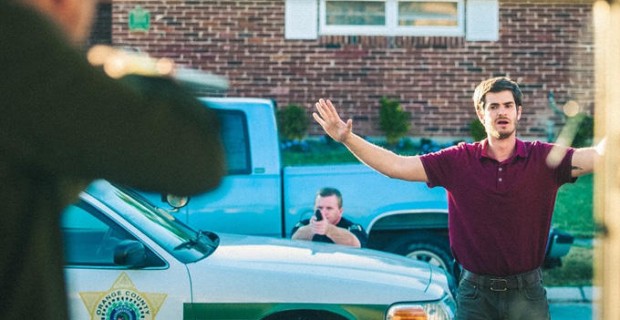
Ramin Bahrani made a name for himself with three independent films over the last decade, focusing on humanity’s daily struggles, reinvented foreign lives in America, and a fundamental sense of decency. With 2012’s At Any Price and this year’s 99 Homes, Bahrani has twice returned to the festival that launched his career, presenting the evolution of those themes. Not coincidentally, the worst years of the financial crisis stand between his acclaimed Goodbye, Solo and the tepidly received 2012 picture, and they must have had a profound effect on the direction of Bahrani’s filmography. With a broader canvas, flashier casts, and a more overt penchant for melodrama, At Any Price and 99 Homes single out agriculture and real estate as the catalysts of contemporary American sufferings. – Tommaso T. (full review)
Finders Keepers (Bryan Carberry and J. Clay Tweel; September 25th)

Based on its premise, one might initially peg Finders Keepers as one of the strangest documentaries of the year, but it soon reveals itself to be one of the most emotional and uplifting. The story centers on John Wood, an amputee who is attempting to reclaim ownership of his mummified leg from Shannon Whisnant, who believes its his property and has dreams of being a reality TV star. Directors Bryan Carberry and J. Clay Tweel root themselves into the community as they explore the perils of addiction and the bond of family, all while tracking this peculiar custody battle of sorts . – Jordan R.
The Keeping Room (Daniel Barber; September 25th)
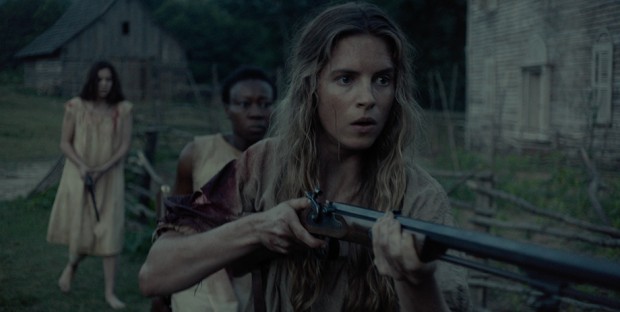
Simply stated in the title cards of Daniel Barber‘s bleak and understated narrative, “War is cruelty.” And at the start of his film, Barber spends little time getting to the needless and hateful violence of people all but removed from morals and the gravity of their actions. While the talented cast is small and the pace is anything but cinematic, The Keeping Room is a stunning film for what it sets out to do. Barber, from a once-Black-Listed script penned by Julia Hart, tells a female-led story where three women, left nearly defenseless, survive the first in a series of marauding attacks at the end of the Civil War. Hardships and loneliness for women abound, and The Keeping Room is but a small sampling of how vulnerable wives, daughters and the like can be with a war on. Yet these women are hard and driven when their lives are at stake. There is always pain and misery on the battlefield, but the same hardships spill out and affect those left to fend for themselves in uncertain times. The Keeping Room floats in and out of conventional editing and exposition, but, while laconic in delivery — and not to be confused or associated with a Terrence Malick style of filmmaking — the message comes across clear and powerful. – Marc C.
Mississippi Grind (Anna Boden and Ryan Fleck; September 25th)

After breaking out with the bleak, masterful character study Half Nelson, filmmaking duo Anna Boden and Ryan Fleck took on baseball with the under-appreciated Sugar and mental illness with It’s Kind of a Funny Story. Some five years later, they are back with the freewheelin’ fun of Mississippi Grind, a good-natured but ultimately conventional exploration of the sadness and loneliness that comes with a gambling addiction. – Jordan R. (full review)
Taxi (Jafar Panahi; October 2nd)

The first image of Jafar Panahi’s Taxi, a POV shot looking out through a car’s windshield, immediately calls to mind the opening of his previous film, Closed Curtain. The latter also began with a shot from behind a window, though there, the view of the outside was partly obstructed by the window’s security bars. This revision signals a shift of tone for the director. While Closed Curtain represented a howl of despair at his situation – living in an authoritarian state that banned him from exercising his profession for 20 years without permission to leave – in Taxi Panahi considers the same reality with more serenity, even humor, though his protest results no less trenchant. His third film since receiving the ban in 2010, Taxi is a perfect complement to its predecessors, adding another chapter to Panahi’s exceptional and thoroughly stirring exercise in meta-filmmaking. – Giovanni M.C. (full review)
Partisan (Ariel Kleiman; October 2nd)

Whether it’s Martha Marcy May Marlene or Sound of My Voice or this year’s The Wolfpack, we’ve seen a number of films at Sundance deal with communes and closed communities, but few bring the level of danger found in Partisan. The directorial debut of Ariel Kleiman (Sundance jury winner for the short Deeper Than Yesterday) is a patiently unfolding drama that displays the lengths one will go to provide shelter and community, and what happens if you step out of bounds. – Jordan R. (full review)
The Forbidden Room (Guy Maddin and Evan Johnson; October 7th)

Dense and lacking the playful quality of his more straightforward work, this represents a new multi-narrative direction for Maddin, and a kind of rabbit hole. Working within the art world verses the film world, Maddin’s work, style and influences have a tremendous amount of power applicable to cinema within the space of a gallery installation. Night Mayor, his first collaboration with the NFB, fictionalized the tension between the NFB’s mission and government controls, capturing the inherently cinematic story of an immigrant inventor who dreams of transmitting images made by Canadians to Canadians. The Forbidden Room, while often brilliant upon first viewing, seems to overstay its welcome. A challenging feature representing a new ambition for Maddin, it’s a step forward, a reinvention, and a difficult film to describe and process. I imagine my admiration for it may grow upon future viewings, but I also fear it lacks substance beyond the disjoined narrative. – John F. (full review)
In My Father’s House (Ricki Stern and Annie Sundberg; October 9th)
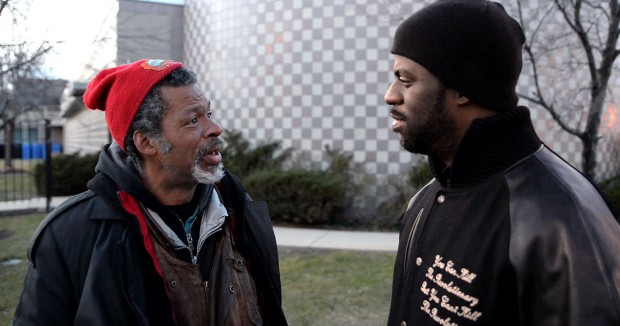
Amongst the national conversation we’re having about race is a topic often glossed-over amongst the conservative talking point of “accountability.” Yes, there are fathers who lie, cheat, steal, break the law, go to jail, abuse drugs, and the sort. Breaking the cycle of poverty is critical: a generation of men are lost to the system, either in prison or dead, thus repeating said cycle. One who broke the cycle and is mentoring young men to do so as well is Che “Rymefest” Smith, perhaps best known on mainstream radio for writing Kayne West’s “Jesus Walks” and most recently for the Oscar-winning song “Glory” from Selma. – John F. (full review)
Victoria (Sebastian Schipper; October 9th)

A two-hour-and-eighteen-minute thrill ride from joyous celebration to abject despair, Sebastian Schipper‘s one-take wonder Victoria is a must-see. This isn’t a formal gimmick, like with Birdman, but instead a conscious effort to truly understand the visceral and emotional experience had by the titular Spaniard and her new Berliner friends. From burgeoning love to life-or-death stakes as these clubbers are tasked with robbing a bank, we’re given an unfiltered look at regular people thrust into a dangerous situation without escape. Adrenaline pumps as instinct replaces control for an adventure lacking the latitude for even one false move. – Jared M.
The Assassin (Hou Hsiao-Hsien; October 16th)

The Cannes Film Festival represents the pantheon of arthouse cinema, so it does raise eyebrows when a wuxia movie is included in its official selection. After all, this is a genre known for superhuman speed and loud, physical forms of expression, stuff that fantasies are made of but not exactly traits one associates with fine arts. That’s until Taiwanese maestro Hou Hsiao-hsien came along to deliver his version of kung fu. The resulting The Assassin (translated from Nie Yinniang) turns out to be the quietest, most introspective and deliberately-paced film in competition, a feat so rare and radical it casually revolutionized decades of filmmaking tradition. – Zhuo-Ning S. (full review)
Tokyo Tribe (Sion Sono; October 23rd)

Though a hip-hopera (the last film to earn that label possibly being R. Kelly’s everlasting epic, Trapped in the Closet), Sion Sono’s Tokyo Tribe puts itself in the company of the extreme Japanese genre cinema eaten up by festival audiences, given their brutal violence and flagrant weirdness. Those essential thrills notwithstanding, it becomes off-putting in how one must struggle to keep up with the film throughout — not just in the narrative terms of story and character, but also its extreme formalism. The camera is constantly roving to seemingly new characters, gangs, and raps almost every couple of minutes — even if, on the other hand, the beats seem very redundant. Yet what makes Tokyo Tribe ultimately unique, if still problematic in its sheer amount of chaos, are the underlying politics. – Ethan V. (full review)
Brooklyn (John Crowley; November 6th)

Presented with the tale of an Irish immigrant, one would perhaps expect a dreary and brutal film about the hardships of moving to America. In a way, John Crowley‘s Brooklyn is that movie, but, really, it’s so much more. While the Nick Hornby-scripted adaptation isn’t without its tough drama, Crowley’s picture is also full of kindness and laughs. In the 1950s, Eilis Lacey (Saoirse Ronan) is moving to America, thanks to her wonderful sister (Fiona Glascott). Eilis leaves her sister, mother, and the small shop she hates working at to go to Brooklyn, where a job and home has been set up for her. Initially, she’s isolated and alone in her new home. She’s not particularly good at her job and doesn’t get along well with her housemates. Her feelings towards the city soon change when she meets Tony (Emory Cohen), who’s basically a total dreamboat with no flaws to speak of. Tony quickly falls for Eilis, and even his Italian parents are smitten by her sweetness. Soon after she falls in love with America and Tony, tragedy strikes and she must return to her small Irish town. Ultimately she’ll have to choose between two homes and two men, the other suitor played by Domhnall Gleeson. – Jack G. (full review)
Mia Madre (Nanni Moretti; November 6th)
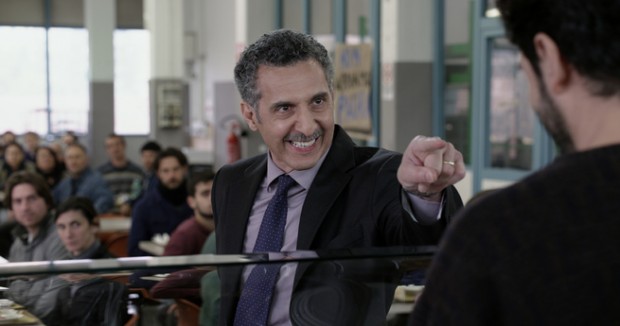
Following 2011’s acclaimed We Have a Pope, Italy’s Palme d’Or winner Nanni Moretti returned to Cannes with a new drama, Mia Madre. The somewhat-meta tale follows a director who is going through both a personal and a professional crisis in his life, and is bolstered by a cast including Margherita Buy, John Turturro, and Moretti himself. While it surely wasn’t one of the most formally intriguing films in the Cannes line-up, the director / co-writer crafts a tender portrait of grief and an authentic look at the process of filmmaking, particularly in how the two intercede. – Jordan R.
Entertainment (Rick Alverson; November 13th)
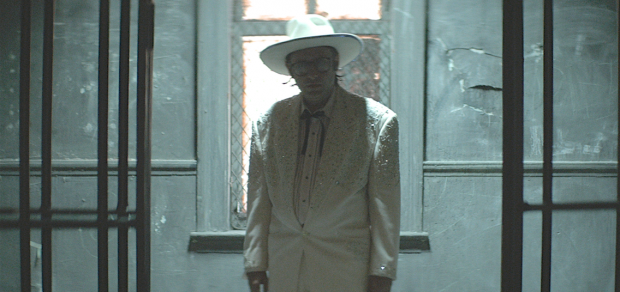
Director Rick Alverson makes some scary comedies. His previous endeavor, The Comedy, showed us the horrors of aging trust fund babies, making for an excellent, funny and headache-inducing result. The challenging experience that is Alverson’s latest film, Entertainment, makes The Comedy feel like a walk in the park. The comedy, which he co-wrote with star Gregg Turkington and co-star Tim Heidecker, follows a bottom-of-the-barrel comedian (Turkington) traveling from gig to gig across the California desert, performing genuinely funny and crude jokes that aren’t for everyone. But then Alverson’s not telling stories for everyone, making his films stand out all the more. – Jack G. (full review)
James White (Josh Mond; November 13th)
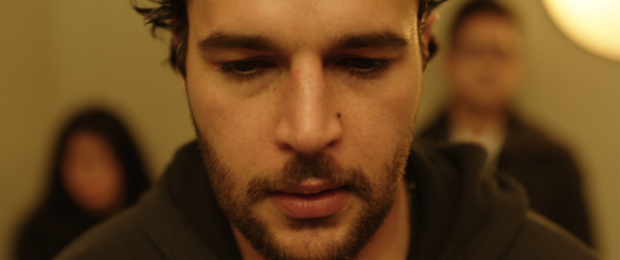
In the five months found within James White, our title character is at the most difficult chapter of his life thus far. Grieving the loss of his father and attempting to assist his ailing mother, the drama authentically depicts the brutality of the process. After producing the gripping Sundance dramas Martha Marcy May Marlene and Simon Killer, Josh Mond diverts in some ways with his directorial debut. Providing yet another intimate character study of a fractured individual, James White also has a perhaps unexpected enveloping warmth. Commanding every scene of the film — and in most sequences, nearly all of the frame in extreme close-up — is Christopher Abbott, who worked with Mond on Marthy Marcy, but is best-known from his stint on Girls and was briefly seen recently in A Most Violent Year. – Jordan R. (full review)
Democrats (Camilla Nielsson; November 18th)
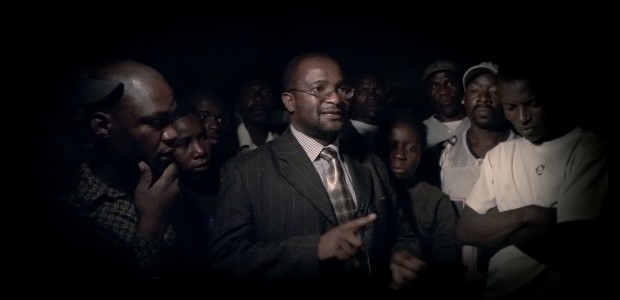
Offering immediate access to historical sausage-making, Camilla Nielsson’s Democrats is an intimate look at the process of drafting a new constitution for Zimbabwe. Taking a balanced exploration of two sides of the argument, we follow Paul Mangwana of president Robert Mugabe’s ZANU-PF and Douglas Mwonzora of the opposition party MDC-T as they struggle for three years to negotiate the terms of the new constitution during the 2008-2009 political negotiations. This time saw an unprecedented power-sharing deal between the ZANU-PF and MDC-T candidates, President Robert Mugabe and Prime Minister Morgan Tsvangarai, respectively. – John F. (full review)
Carol (Todd Haynes; November 20th)

To be an actress and land a leading role in a Todd Haynes film must be a dream come true. With Safe, Far From Heaven, and his five-part miniseries Mildred Pierce, Haynes has proven himself to be one of the very few male directors not only interested in but capable of endowing women protagonists with genuine and far-reaching complexity. In doing so, the performances he’s drawn from his actresses – Julianne Moore in the first two titles and Kate Winslet in the lattermost – have been amongst the very finest of their careers. These virtues are again masterfully exhibited in Carol, his sublime adaptation of Patricia Highsmith’s 1952 novel The Price of Salt. – Giovanni M.C. (full review)
Mustang (Deniz Gamze Ergüven; November 20th)

The first feature film from director Deniz Gamze Ergüven, Mustang (recipient of the Europa Cinemas Label Award at Cannes’ Directors’ Fortnight program), follows five sisters living in a rural area of Turkey who are slowly imprisoned by their family and sold off into marriages because of their free-spirited nature. As they have to deal with more and more constraints, they use every method they can to fight them and preserve what little of their freedom is still possessed. The main cast of sisters is led by Günes Sensoy, who plays the youngest, Lale, but also most resilient of the girls and, arguably, the main character of the story. We see most of the film from her point-of-view, and thus it’s her attitude and actions we’re most invested in. As a tenacious, tiny child, she proves to be a fearsome actor who manages to give the film’s most endearing performance. – Raphael D. (full review)
Arabian Nights (Miguel Gomes; December 4, 11, 18)

Miguel Gomes’ Our Beloved Month of August and its ecstatically-received follow-up Tabu showcased the director’s love of storytelling as a means of contemplating reality. In these films, by whimsically intermingling and reinventing cinematic traditions as well as throwing in an abundance of personal innovations, Gomes wove tales that reflected on defining aspects of Portuguese culture with irresistible idiosyncrasy. The six-hour triptych Arabian Nights continues in the same vein, though with far greater ambition. Fascinating even in its misfires, this sprawling and fantastical document of the country’s plight in the wake of the global financial crisis confirms Gomes as one of the most exhilaratingly inventive filmmakers working today. – Giovanni M.C. (full review)
Son of Saul (László Nemes; December 18th)
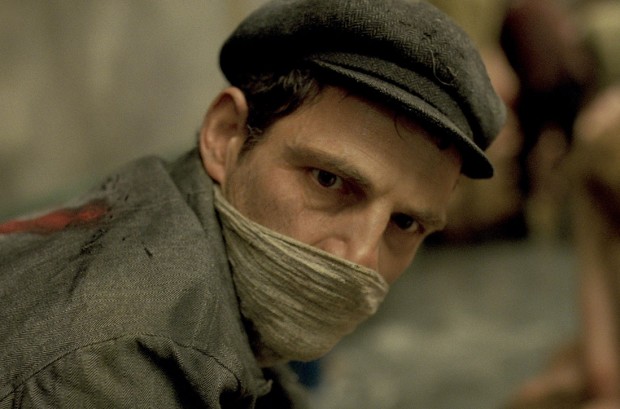
László Nemes‘ prodigious debut feature, Son of Saul, inhabits what Primo Levi called “The Gray Zone” in his essay of the same name: the reality of the Sonderkommando, concentration camp inmates who bought themselves improved chances of survival by operating the Nazis’ crematoria. In discussing these inmates’ choice, Levi warns the reader against casting judgment – this caution is addressed not only to those who never experienced the horror of the camps, but also to those who survived it. Levi argues that for the victims, the Holocaust had its own exceptional set of rules that applied differently to every individual. Consequently, the vital endeavor to understand genocide cannot discredit the experience of those who made such decisions within that system. Nemes, whether directly or not, took Levi’s advice to heart. By approaching his material through a purely experiential style that purposely eschews psychology, he has crafted a towering landmark for filmic fictionalizations of the Holocaust. – Giovanni M.C. (full review)
Macbeth (Justin Kurzel; December TBA)

Justin Kurzel’s phenomenal debut, Snowtown, portrayed the most notorious serial killings in Australian history, the Snowtown Murders. Though nigh traumatizing in its graphic depictions of extreme brutality, the film’s investigation into the psychology of its characters – the charismatic psychopath John Bunting and the maladjusted teenager James Vlassakis who finds refuge in Bunting’s murderous group – achieved a highly effective appraisal of the dynamics of corruption that can abet violence. Consequently, it’s not surprising that in adapting a Shakespeare play as his second feature Kurzel chose Macbeth. The director approaches the classic tale of murder and moral decline with the same level of visceral stylization that distinguished his debut, pulling off perhaps the fiercest cinematic translation of Shakespeare to date. – Giovanni M.C. (full review)
See our complete fall 2015 preview.
Which films are you most anticipating?

